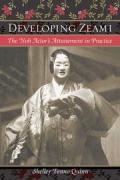
Faculty Working in this Area: Mark Bender, Majorie Chan, Meow Hui Goh, Mari Noda, Chan E. Park, Ooyung Pyun, Charles Quinn, Shelley Quinn, Patricia Sieber, Galal Walker
The theme of “performance” is manifested in many facets of faculty research and teaching in literature, language pedagogy, linguistics, and related fields of interest. Our basic understanding of “performance” is that of a process of enhanced
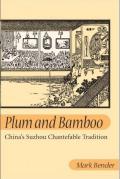
communication and embodied activity that involves participants as performers, audiences, or other roles. We recognize that as a process, performance involves the nurturing of performers within a cultural tradition, the transmission of means and modes of performance, the acquisition, practice, and execution of repertoires, and engagement of performances by communities of reception. We also recognize that beyond live performance, there is in the East Asian context a huge number of “oral-connected” written texts that are in many ways related to either living or
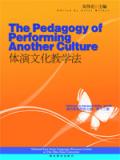
historic performance traditions.
Gathered under the umbrella of “performance,” DEALL has world-class expertise in the following areas: traditional performing arts in East Asia; the study of oral performance tradition and oral-connected literary traditions; modern Chinese performance poetry; and the “performed culture” school of East Asian language pedagogy. Thus performance is an important component of DEALL that
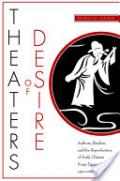
compliments the areas of literature and culture, linguistics, and language pedagogy that make up our diverse department.
DEALL is especially strong in the areas of research, enacted performance, and translation in regards to traditional performances and oral-connected texts in East Asia. Several faculty, including Shelley Quinn, Chan Park, Patricia Sieber, Marjorie Chan, Meow Hui Goh, and Mark Bender are conversant with a range of
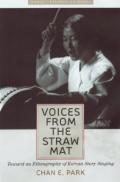
performance traditions that include Japanese Noh drama, Koreanp’ansori storytelling, Yuan dynasty Chinese opera, performance modes and translation of early Chinese poetic traditions, national and regional operatic traditions of China (kunqu, Beijing opera, Yue (Shaoxing) opera, Cantonese opera, etc., Suzhou story-singing (China), and various epic, folksong, and folk story traditions from ethnic minority groups (Yi, Miao, Daur, etc.) in China.
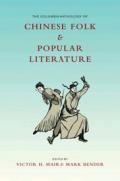
Traditional performances and related texts offer an invaluable window on shared cultural practices and values. Research on such aspects of performance as training, transmission, and the cultural roles of performances in the community reveals much about a people’s collective sense of cultural heritage. What is more, actual hands-on training in how to perform—whether a traditional poem, story, dramatic role, or folk dance connected to a legend—gives opportunities to internalize more intimately aspects of the culture under study. Such learning through the body is
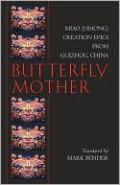
also an important component of our present performance program in DEALL.
More contemporary traditions of East Asian performance are represented by Heather Inwood in her study of contemporary Chinese performance poetry and Mark Bender’s interests in ethnic minority performance poets in China. Translation of these various performance and performance-connected traditions allows for cross-cultural exchange and understanding of material that would other wise be wholly inaccessible to non-natives. Cross-genre comparisons are also fruitful strategies to enable students to study different versions of a story, from storytelling and folk songs or ballads, to full-length novels and operatic performances, and to contemporary film versions (movies and TV dramas series).
The idea of performed culture is at the heart of the DEALL approach to language pedagogy. The approach is especially suitable for the “role-oriented” cultures of East Asia where situations tend to follow culturally established patterns. Basic scripts are learned by a process of enactment and adaptation to real-life performance situations. Language learners acquire their performance skills in ways similar to theatrical stage performers, involving the study of scripts, rehearsal, and improvisation. The variety of roles students are able to play determines the level of their knowledge of the target culture and society, on its terms. Language pedagogy, then, is concerned with enabling the process of learning to competently perform in another culture. DEALL faculty involved in the creation of this pragmatic approach to the learning of East Asian languages include Galal Walker, Mari Noda, Charles Quinn, Jianqi Wang, Etsuyo Yuasa, and Ooyoung Pyun.
Linguistic research conducted by Marjorie Chan, Charles Quinn, Mineharu Nakayama, and other DEALL faculty members cuts across performance in literature and language pedagogy in the study of both spoken and written corpora; that is, data for research consisting of audio- and videorecordings as well as scripts and texts prepared by storytellers, songwriters, dramatists, stage performers, as well as the novice, intermediate, and advanced language learners. Linguistic research spans synchronic and diachronic dimensions, including, for example, Marjorie Chan’s interest in the study of vernacular literacy as evidenced by written Cantonese song lyrics, balladry, and operatic scripts. Linguistic analyses also span multiple levels of linguistic structure, from prosodic studies of humor and sound-symbolic phenomena in early Cantonese pop music, to sociopragmatic research on discourse phenomena, such as telling jokes, doing stand-up comedies, or performing speech acts, such as requests, apologies, refusals, invitations, etc.
